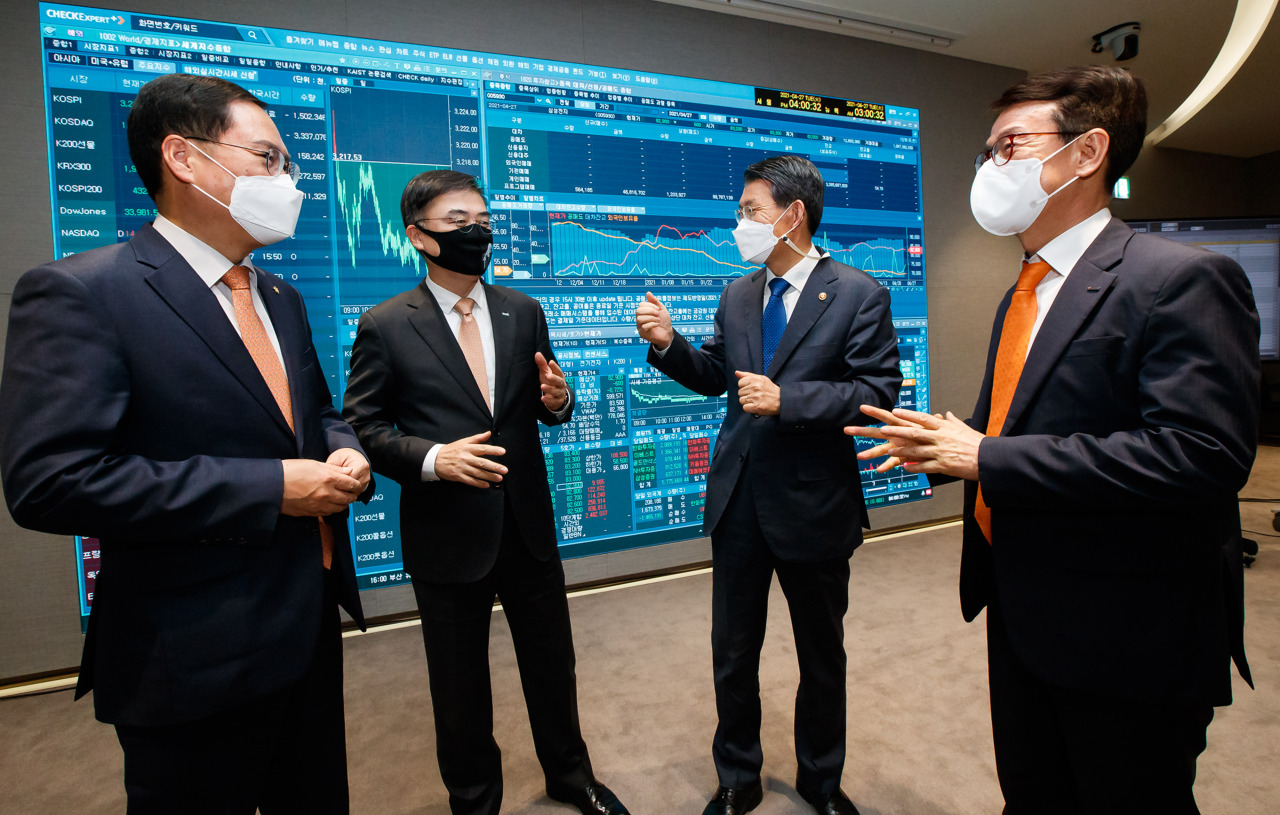South Korea gets ready for short selling under watchful eyes
By Choi Jae-heePublished : April 28, 2021 - 16:03

South Korea resumes the short selling of stocks Monday, ending a 14-month ban imposed to protect investors from a sudden market fall triggered by the pandemic.
Despite the government’s cautious moves -- leaving some restrictions in place even after the temporary ban expires -- retail investors are still wary over a possible drop in stock prices, according to industry sources Wednesday.
The regulator’s decision to permit short selling within limits starting May 3 came after strong criticism from retail investors, who argued that the planned measures would give the local stock market the jitters and that they might fall victim to sophisticated institutional investors and investors from overseas.
“Partly driven by hedge funds’ short sales, the Korean stock market had fallen to the 1,400 mark in March last year, which marked the sharpest drop among the world’s major stock markets,” said Jung Eui-jung, head of the Korea Stockholders Alliance, a group of local retail stock traders working on a global anti-short-selling campaign.
“The country’s short selling market is 99 percent dominated by foreigners and institutions. Their gains are nearly 39 times higher than those of retail investors, who lack information and capital needed to profit from short selling. The short selling resumption will be a nightmare not for ordinary individual investors.”
Brokerages, meanwhile, argue that the upcoming partial resumption of short selling will have a limited impact on the stock market.
“After the financial regulator resumed short selling in 2009 and 2011, which was temporarily prohibited due to market volatility caused by the 2008 global financial crisis and the 2010 eurozone debt crisis, respectively, the benchmark Kospi rose less than 15 percent and 12 percent in the three months following the short selling resumption,” Samsung Securities said in a report.
“The partial reactivation of short selling would not be a downside risk to the local stock market since the country has posted improved economic indicators amid the pandemic and ample liquidity,” said Jeon Kyun, an analyst at Samsung Securities.
Even though short selling will be allowed next week, foreign and institutional investors are less likely to push for a selling spree on hopes that domestic companies will enjoy an economic rebound from the pandemic this year, said Bae Han-joo, a researcher at Shinhan Investment.
Short selling is a trading tactic whereby investors immediately sell borrowed stocks in the belief that share prices will fall, allowing them to later repurchase the stocks and return them to the lender. The short sellers profit by buying the stocks back at a lower price.
The policymaking Financial Services Commission imposed a six-month ban on short selling in March last year to stabilize the local stock market, which was rattled by the COVID-19 pandemic. In August the ban was extended for another six months.
The FSC decided to reactivate short sales of large-cap stocks on the Kospi 200 and Kosdaq 150 indexes, albeit with limits, but said it will review whether to allow short selling of the remaining shares on other indexes after monitoring market conditions, officials said.
Amid the mixed reactions, as of Tuesday more than 8,000 individual investors had applied for online courses offered by the Korea Institute of Financial Investment and mock investment trials through the Korea Exchange.
As part of efforts to strengthen protection for investors, the authorities have required them to complete the programs before they start negative betting.
Earlier, the financial regulator launched a new stock loan system for retail investors. Through the system 17 local brokerages -- including Korea Investment & Securities, NH Investment & Securities, Samsung Securities and KB Securities -- will lend Kospi 200 and Kosdaq 150 shares worth up to 2.4 trillion won ($2.1 billion) beginning May 3.
By Choi Jae-hee (cjh@heraldcorp.com)










![[Hello India] Hyundai Motor vows to boost 'clean mobility' in India](http://res.heraldm.com/phpwas/restmb_idxmake.php?idx=644&simg=/content/image/2024/04/25/20240425050672_0.jpg&u=)









